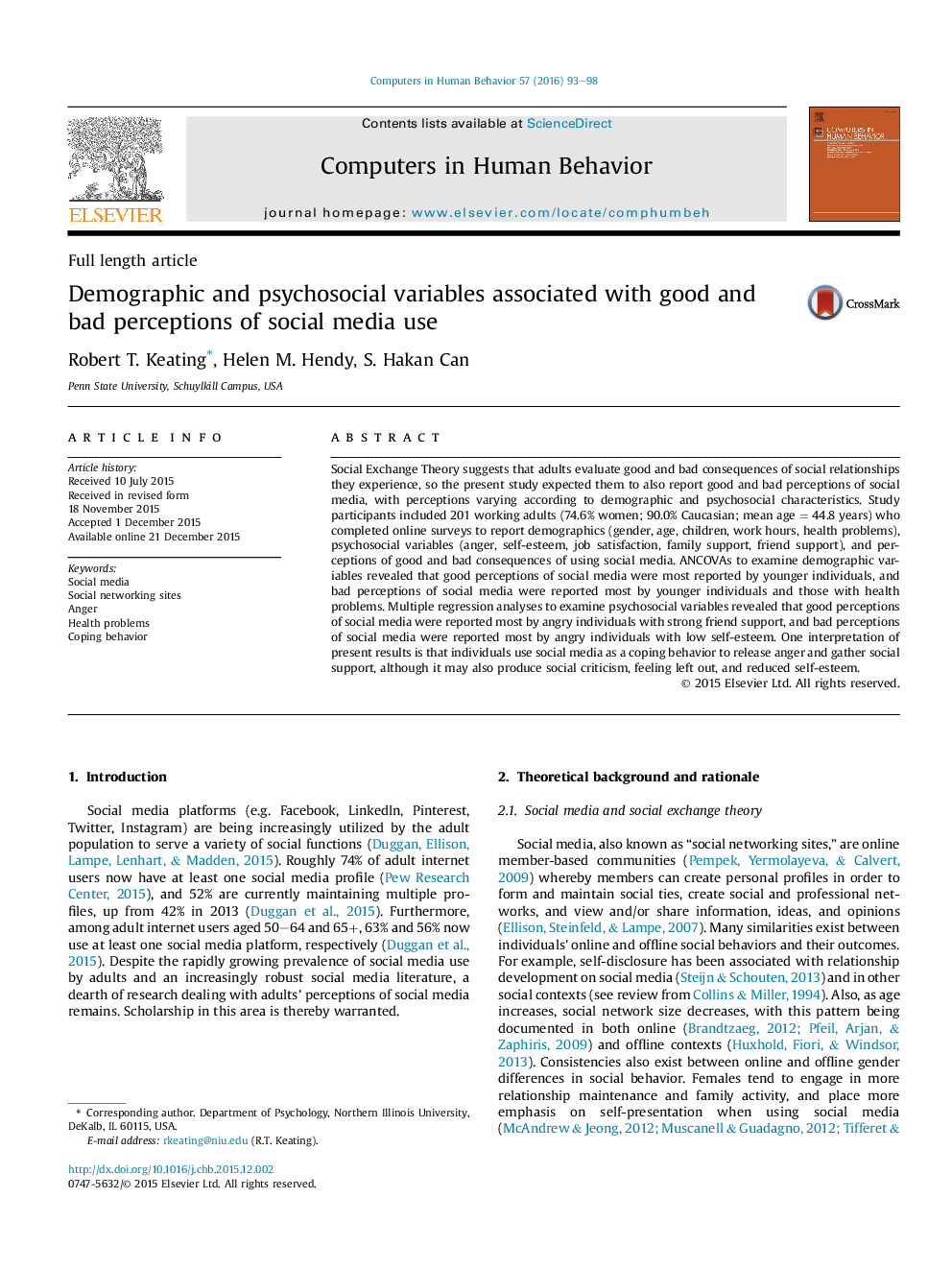| کد مقاله | کد نشریه | سال انتشار | مقاله انگلیسی | نسخه تمام متن |
|---|---|---|---|---|
| 350217 | 618433 | 2016 | 6 صفحه PDF | دانلود رایگان |
• Examined variables associated with perceptions of social media among an adult sample.
• Good and bad perceptions were reported most by younger individuals.
• Bad perceptions were reported most by those with health problems.
• Good perceptions were reported most by angry individuals with strong friend support.
• Bad perceptions were reported most by angry individuals with low self-esteem.
Social Exchange Theory suggests that adults evaluate good and bad consequences of social relationships they experience, so the present study expected them to also report good and bad perceptions of social media, with perceptions varying according to demographic and psychosocial characteristics. Study participants included 201 working adults (74.6% women; 90.0% Caucasian; mean age = 44.8 years) who completed online surveys to report demographics (gender, age, children, work hours, health problems), psychosocial variables (anger, self-esteem, job satisfaction, family support, friend support), and perceptions of good and bad consequences of using social media. ANCOVAs to examine demographic variables revealed that good perceptions of social media were most reported by younger individuals, and bad perceptions of social media were reported most by younger individuals and those with health problems. Multiple regression analyses to examine psychosocial variables revealed that good perceptions of social media were reported most by angry individuals with strong friend support, and bad perceptions of social media were reported most by angry individuals with low self-esteem. One interpretation of present results is that individuals use social media as a coping behavior to release anger and gather social support, although it may also produce social criticism, feeling left out, and reduced self-esteem.
Journal: Computers in Human Behavior - Volume 57, April 2016, Pages 93–98
